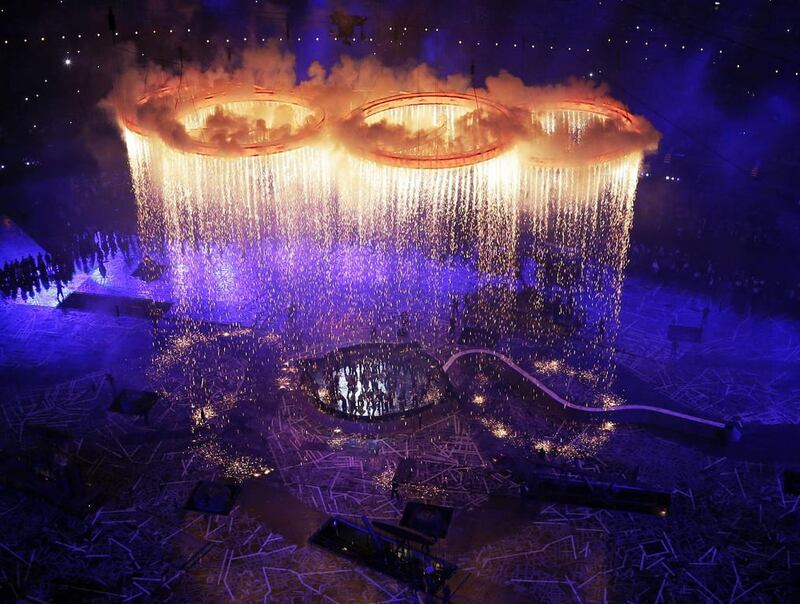It’s been a week of celebration across the UAE. The nation marks its 42nd National Day on Monday, Dubai has been awarded Expo 2020, and even the UAE’s cricketers last week reached the 2014 ICC World Twenty20 for the first time.
Now, as Dubai prepares to hold the annual Host Cities Summit on Wednesday and Thursday, the Expo 2020 success has again fuelled talk of the city potentially bidding for the Olympic Games in the future.
“The UAE has the infrastructure, capability, manpower and know-how to host such events,” Abdulrahman Falaknaz, the UAE National Olympic Committee’s finance director, said on the sidelines of the 2012 Host Cities Summit in Dubai.
Tessa Jowell, former British Olympic Minister and a driving force behind London’s successful 2012 bid, said she believes that holding a major international event like Expo 2020 can open the door for successful future bids.
“When I look back on our decision to bid for the [2012] Olympics, it was influenced by holding the Commonwealth Games of 2002,” she told me. “We had a lot of self-confidence.”
Jowell played a large part in securing London 2012’s budget and oversaw the governance, venue procurement, athlete funding as well as international, national and regional programmes. She remains pragmatic and cautiously points out that events are not always awarded to the city with best existing facilities. Potential is often rewarded, too.
“There are many reasons for the awarding bodies, whether for Expo, the Olympics or World Cup, to consider,” she said. “They have to make a choice. Do they award with a view of it being a catalyst for [a host’s] development, or to showcase an already-developed country that is perhaps still not sufficiently known?”
Dubai has experienced enough infrastructure progress during the last two decades not to fit into the first category.
As for exposure, the emirate, indeed the country, continues to hold many annual and one-off international sporting competitions. The Formula One Abu Dhabi Grand Prix, Dubai World Cup, key golf and tennis tournaments, Dubai Rugby Sevens and last month’s Fifa Under 17 World Cup, to name a few.
The Olympics, however, would represent a whole new kind of challenge.
One of the most valuable resources for any bidding city are its human resources. Last year, London was lauded for hosting the most multicultural Olympics in recent history. Would Dubai’s diverse demographic be a telling factor?
“When seeking to host a major event, we wanted every pound invested to work harder,” Jowell said. “We were keen to ensure that every pound was spent with clear values, which included inclusivity and growing human competence.”
“Physical infrastructure” on its own, Jowell says, is only the start.
Then there’s the issue of weather conditions during the summer Olympics’ traditional July/August time slot.
“That’s a decision for the IOC,” she said. “Extreme temperature is something that awarding bodies take into account, something that must be addressed. Dubai’s high temperatures would be a factor.”
There is precedence for Olympics being held in October (Tokyo 1964, Mexico 1968) or even November (Melbourne 1956). While such a move is not inconceivable, Jowell again strikes a note of caution.
“It depends on how much will there is among the committee to award the event,” she said. “Everything can be adjusted if the will trumps all other factors. But that’s a very rare consideration, and no one should be under any illusions that this should happen.”
Unlike nationwide events like the World Cup, Olympic Games are awarded to individual cities. Still, at London 2012, certain events spread to other parts of the country.
The same thing could happen here. In theory, a Dubai Olympics would likely see football matches at Mohammed bin Zayed Stadium in Abu Dhabi, while sailing events could find a home in Ras Al Khaimah.
“This is something the IOC are not usually keen on,” Jowell said, noting that convenience and proximity of venues remain a priority.
“What becomes important is the compactness, the ease of travel for the athletes and fans.”
What emerges is a formidable set of challenges for a city that nonetheless thrives on competition.
The signs are promising; experience, infrastructure and the will to succeed are all in abundance.
The people are, crucially, on board. The last week has witnessed an outpouring of emotion across the UAE, as much from expatriates who now call it home, as from Emiratis themselves.
Perhaps that compactness, and inclusivity, is what will prove the country’s trump card in the future.
akhaled@thenational.ae





